The Wii has never been thought of much as a home for sports simulation enthusiasts, and the glut of sports minigame compilations for the system doesn't help matters. Despite that, there are still high-profile sports simulation games being released this late in the console's life. While most of them have been on-again, off-again affairs, one sports franchise that has been there from the outset is FIFA Soccer. After going through several years of experimentation, the series finally found its footing last year with a solid version of the game that could please both simulation sports fans and arcade sports fans. With this year possibly being the last year of the Wii, EA Sports rolled out FIFA Soccer 12 with a few changes. For owners of last year's version, there isn't much of a reason to upgrade. For newcomers, the game isn't all that bad.
New to this year's version is FIFA City, something you'll experience immediately since it is the very first thing you'll interact with upon booting up the game. You name your city and your team. From there, you'll play the other game modes, and as you hit certain milestones or complete certain tasks, you're awarded achievements. Unlike every other Wii game that has tried to use this, these achievements count toward your overall FIFA City level and grant you access to new buildings and facilities, making the menu prettier in the process. Personal level progression also gets you the chance to open up a few customization options as well as participate in an intercity tournament where you compete against other made-up cities for the championship title.
At first glance, the overarching FIFA City mode feels much like FIFA Superstars, the company's Facebook game. The city has a simple cartoon look, and the notifications of growth become more apparent when you look at the city. Truthfully, the bulk of the progression in the city is purely aesthetic, as new buildings and facilities open up faster than the game's other unlocks. Still, there's no denying that its presence has an addictive effect, so you'll want to keep going just to see your city change a bit.
The other new addition to this year's game is Tournament mode, where you control the destinies of any club in its quest for the regional cup. Around 30 different cups are up for grabs, and while the World Cup isn't included, everything from the MLS championship to the various cups in Europe and other Latin American countries are there for the taking. The games play out more like seasons as opposed to straight-up tournaments, so be prepared to go through at least 30 games before you see a championship given out. Fortunately, the games can be simulated, but you're forced through each individual game instead of letting you pick the final game and merely simulating everything up to that point.
Both Tournaments and FIFA City are new to the game while everything else remains the same as before. Hit the Pitch is your standard 11-on-11 soccer with the option of either playing as the whole team like a traditional sports game or simply focusing your energy on one player in the field. Every team from just about every nation and organization is represented here, and the same goes for every stadium. The move set and difficulty are still the same as before, though, so those expecting the game to be as tough or as complicated as the Xbox 360 and PS3 iterations will be disappointed. The simplicity of the controls is akin to the late PS2 versions of the game.
Hit the Streets is the five-on-five mode that's similar to the publisher's FIFA Street series, but without the move variety and gamebreakers in tow. Games are either based on time or score, and while most of the rules from standard soccer apply, there's no such thing as fouls. You have the teams from the standard mode, but now they are augmented with power-ups such as opposition shrinking and more powerful tackling. You also have access to some special moves and tricks that can be pulled off, though it isn't as numerous as one would think since each player only has four.
Battle for Glory has you in the role of a soccer club manager as you fight to get your team to its respective championships and try to keep your job. You can start by picking up a position from either a lower-tiered club or one of the higher-ranked ones, though the advantage from a lower-tiered team comes in the form of you becoming both player and manager instead of just taking on the manager role. In either case, you have to manage the welfare of the players and invest in things, such as transportation and facilities to train your players, get performance boosts, and get financial boosts for both playing and winning. The mode is just as engaging as before, but only those interested in the managerial side of the sport will find this to be interesting.
Finally, Streets to Stadiums makes a comeback in virtually the same shape as before. You start off by creating a player and taking him through five-on-five street matches before he graduates to the professional 11-on-11 games. Along the way, you build him up in a RPG-like manner so his actions on the field determine his growth and not whether games are won. Bonus XP can also be earned by performing bonus tasks, like scoring a goal or performing trick passes. However, bonus XP can also be removed if you fail to complete said task before the allotted time period ends.
If there's one common theme, it's that FIFA 12 on the Wii is simply a content update with a couple of new modes, though it's not necessarily an improvement. All of the same bugs from last year's game are here, so any exploits from last year's iteration are still present and accounted for in this title. It's not that last year's game was terrible, but making some fixes to existing content would've gone a long way in lessening the feeling that the bare minimum of work was done on this version when compared to the ones on other consoles.
The biggest gaffe comes from online play, or lack thereof. Unlike last year's version, online Wi-Fi play is absent from this game for both 11-on-11 and Street play. This is surprising considering that the online in FIFA Soccer 11 worked rather well with little to no lag in any of the matches. With online absent here and shut off in 11, Wii soccer fans will have to resort to some Pro Evolution Soccer 2012 to get their online fix.
The controls maintain the same schemes and problems as last year's version. The Classic Controller remains the best way to control the game due to its similarities with the other console control layouts, though the Pro version is preferred due to the different uses of both Z buttons. The Nunchuk/remote combo still works well enough, even though the issue of reading slide tackles hasn't been addressed. It reads the remote shakes most of the time, but it fails often enough that you'll stop trying to perform this move after a while. The remote-only setup remains the worst way to control the game, as you'll be relegated to button mashing to achieve anything, making the game feel too simple despite its simulation status.
Like most of the game, the graphics haven't changed. The players retain a cartoon-like appearance with some decent shading, but they lack a good form of shadowing. In the stadiums, for example, there is only one shadow per player instead of the standard four you're used to seeing in other places. The animations are nice enough, but the faded color scheme and lack of antialiasing make the game appear aged. The environments still suffer from these color and aliasing issues, but the other details — e.g., the crowd movements, flags waving around in professional stadiums, textures in street soccer venues — make the game look presentable.
The sound remains the one technical element that has seen some changes in the expected areas. The soundtrack is still comprised of mostly rock songs from predominantly European bands, and this year's song selection is quite good. Interestingly, there is a muted echo effect when songs are played during street soccer mode, and while it is a nice touch for the indoor arenas, it sounds odd having that happen to outdoor spaces. The commentary team is as solid as before, even though you get the feeling that no new dialogue was recorded for the game. The voices for both the formal and street versions of players are great.
As stated before, FIFA Soccer 12 is a solid game for Nintendo's console but only if you haven't played last year's version. The FIFA City feature alone is enough to keep people busy while the rest of the content performs solidly. Despite this, there are no real improvements in the other modes or in the game's technical aspects. For those who enjoy playing multiplayer, the removal of online play really hurts the title's longevity. Unless you have a burning desire to have the latest team rosters, there's not much incentive for owners of the previous game to purchase the new one anytime soon.
Score: 7.0/10
More articles about FIFA 12


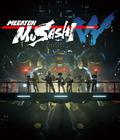
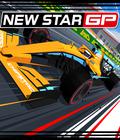
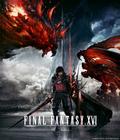
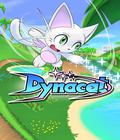





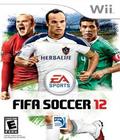 FIFA 12 is the latest installment in the soccer franchise, adding a slew of new features such as a new impact engine to improve hit detection, a brand new passing system, improved AI, new lighting effects, a more ergonomic menu interface, and presentation matches to emphasize the atmosphere of the game
FIFA 12 is the latest installment in the soccer franchise, adding a slew of new features such as a new impact engine to improve hit detection, a brand new passing system, improved AI, new lighting effects, a more ergonomic menu interface, and presentation matches to emphasize the atmosphere of the game








